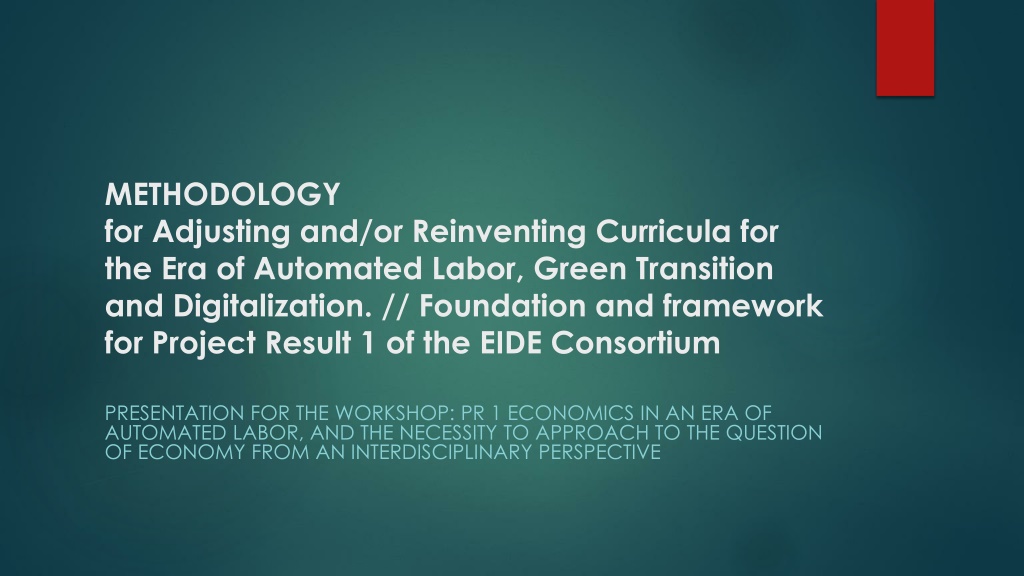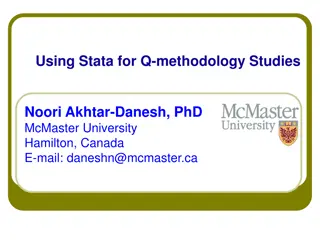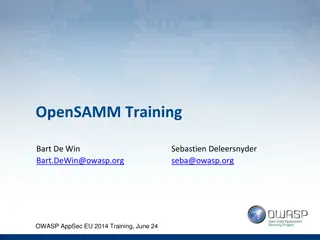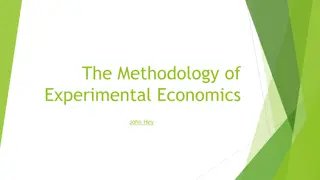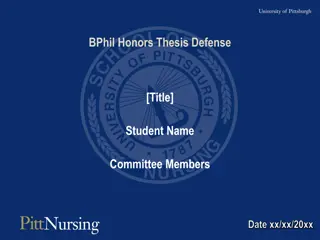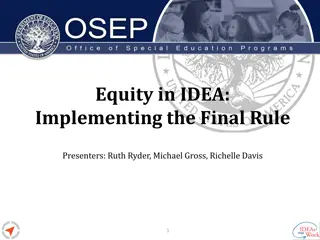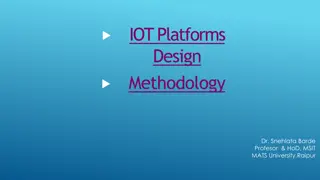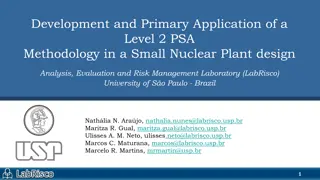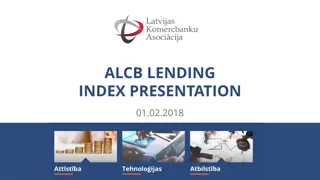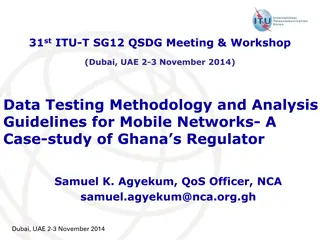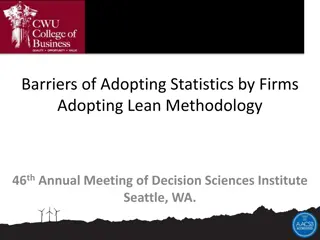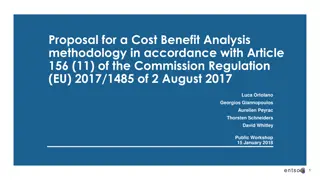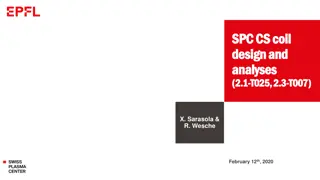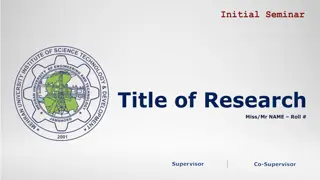METHODOLOGY
Teaching and learning in social sciences and humanities are aligning with accelerated economic changes due to automation and digitalization. The focus is on reinventing curricula to address the digital transformation we are experiencing, incorporating interdisciplinary perspectives and new research themes. Project partners, including non-EU member states, involve adjustments to align with European standards. The goal is to move towards curricula that reflect the impact of digitalization and automation on our societies and economies, addressing key concepts such as future democracies and new social contracts.
Download Presentation

Please find below an Image/Link to download the presentation.
The content on the website is provided AS IS for your information and personal use only. It may not be sold, licensed, or shared on other websites without obtaining consent from the author.If you encounter any issues during the download, it is possible that the publisher has removed the file from their server.
You are allowed to download the files provided on this website for personal or commercial use, subject to the condition that they are used lawfully. All files are the property of their respective owners.
The content on the website is provided AS IS for your information and personal use only. It may not be sold, licensed, or shared on other websites without obtaining consent from the author.
E N D
Presentation Transcript
METHODOLOGY for Adjusting and/or Reinventing Curricula for the Era of Automated Labor, Green Transition and Digitalization. // Foundation and framework for Project Result 1 of the EIDE Consortium PRESENTATION FOR THE WORKSHOP: PR 1 ECONOMICS IN AN ERA OF AUTOMATED LABOR, AND THE NECESSITY TO APPROACH TO THE QUESTION OF ECONOMY FROM AN INTERDISCIPLINARY PERSPECTIVE
The Scope The alignment of teaching and learning in the area of SSH (social sciences and humanities) with the reality of an ever accelerated economic development through automation and digitalization can take the form of either: inventing new curricula or intervening in the existing ones with new themes, problems and research questions that address the era we live in which is transforming into a digital continent if not world. In spite of the differences in the country profiles and the analysis of the faculty from the different partners in the project consortium, we have established commonalities that we believe ought to be and could be integrated in the existing curricula through syllabus interventions, or move toward reaccreditation with the same horizontal aspect of keeping in view the dimensions of digitalization and automation
.Two of the partners in the project are not EU member states but they are full members of the Erasmus program and the European Higher Education Area. Thus, with minor adjustments ( minor from a technical or administrative point of view, but the alignment with the European Acquis is a must for the accession countries), the same rules set by the EU apply to all project partners in this consortium. - Processes of digitalization and rapid technological development will change our part of Europe, even if in an uneven manner compared to the richer or older member states, and this constitutes a socio-political, economic and even ideological transformation in the sense of subject formation of both physical and legal entities;
- Our departments covering the areas of SSH, cannot stick to the traditional disciplines or political discussions in an abstract and purely academic (if not scholastic) manner, but need to be able to discuss policies scientifically responsibly and thus address the emerging reality of digital societies; the latter refers to other key concepts of SSH curricula, such as the future of democracies, possible new social contracts, possibility of a new political-economy and the overall overhaul of what being a citizen and a human subject means (esp. in the light of labor automation, and the human subject rid of its definition in modernity as homo faber);
- We raise the question of whether the European Green Deal will effectively tackle the issue of climate crisis or becomes just another form of accruing surplus value detached from its use value (possible zero-net carbon footprints in European companies, at the expense of the outsourced heavily labor and carbon driven preproduction of, e.g., e-fuels, or the threat to the planetary ecosystem by way of ruthless exploitation of mineral resources); which once again proves that we cannot have political discourse in academia detached from understanding and analyzing the policy context.
- We conclude that interdisciplinarity is an indispensable component even as a dimension of the more conventional fields, let alone the need to pursue interdisciplinary development of areas, with the ambition of going into e deeper integration and closer ties with STEM (as in the cognitive sciences) - We agree, as a consortium, that our considerations of the policy context in an attempt to adjust SSH teaching and research to the emerging era, aligned with our regional context, we will perhaps need to imagine a new political economy (deep crisis of capitalism as we know it, and what is beyond it).
- We acknowledge that experimental and theoretical go hand in hand with the practical, both in research and in treatment of academic contents: one is called upon reimagining human subjectivity in the emerging reality as it is unavoidable that it undergoes changes, and this philosophical question and a question of the interdisciplinary humanities begs the participation in the conversation of the STEM sciences too.
The Epistemic and Methodological Challenge as one of Deep Inter-Disciplinarity, Creation of Cross-Disciplinary Methodological Toolkits and Applicability: The End of Self-Sufficient Scholarship? We would affirm that the humanities have contributed to commentarism on and perhaps in STEM and AI more specifically, more specifically in the form of a social commentary and philosophical contemplation on topics such as the Self, the post-human, ethics in AI. Considerations on the self in the digital era has been carried out in the areas of humanities and social sciences, as have notions coming from the humanities, and philosophy in particular, been invoked in technological research and STEM. We argue that this exchanges have been carried out across department and disciplines, however in a manner that has never really challenged the genealogies of the notions and the use they may have in each of the major areas, namely SSH (social sciences and humanities) and STEM, and as promulgated by the EU and EC s programs, and more recently through STEAM (Science, Technology, Engineering, Arts and Mathematics).
We argue that the two major fields, SSH and STEM respectively, seem to be addressing shared questions in a unilateral manner, without creating a language that could be transparent to both areas. In other words, we argue that topics such as subjectivity, consciousness, rationality, irrationality are still in operation in philosophy in manners indebted to pre-modern traditions (the opposition between rational and emotional, the dichotomy between idea and matter) that do not contribute to the debates in the STEM sciences.
On the other hand, in cognitive sciences, and in other STEM sciences too, one operates with notions that spring from philosophy, such as consciousness or identity, but the use is spontaneous, philosophically unchecked, without it being subjected to the rigor of the discipline/s (of philosophy and other SSH), used almost colloquially as it builds on evolutionary biology and other relevant sciences, entrenched in materialist presuppositions while supplanting them with Plato's views leading to inconsistent positions. (Cf. Michael Levine and Dany Adam, Ahead of the Curve: Hidden Breakthroughs in the Biosciences, 2017)
The interdisciplinary and policy centered study of economy The intergovernmental policy goal of restructuring European economy and socio-political reality shared by all countries in the region represented in the consortium, as well as wider Europe, of an ever greater labour automation, accompanied by a boost in the small and medium enterprise (SME) sector, ought to be examined with scientific rigor of an integrative interdisciplinary perspective, i.e., in terms of what it seeks to accomplish and how it will affect the overall societal reality on the continent. It ought to be submitted to such analysis from the multifaceted perspective of economics, social sciences, technologies, cognitive sciences and STEM.
In the given green, digital context when economy assumes a geopolitical status To define the starting points of a topical epistemic-methodological paradigm which will enable collaborative investigation of the phenomenon on the rise of full digitalisation of the society and economy and an ever grater automation of labour and greening of the economy and exchange, tackling several key questions. Thus, the main aim is hereby presented as a break-down of several research questions: 1) will a deeply digital society enable equal access to all and what are its challenges of possible exclusion, along the lines of gender and its socio-economic dimension? 2) Will a fully digital Europe of AI be a place of democracy, what are the dangers of sliding into totalitarianism or autocracy? 3) What is the future of environmentalist activism once the green transition is mainstreamed into the hands of the nation-states and corporations, where in the society can it position itself as a proper watchdog of the policies underway?
4) What will be the status of physical labour in an ever-greater automation of labour and mushrooming of SME s in Europe, and, in this context, what will be the status of Southeast Europe as it is currently lagging behind the rest of the continent? 5) Can STEM and SSH envisage a society in a mutual effort and formulate its priorities such as the question of rights and agencies, differences between subjectivities and means of production (when it comes to machines and AI), can a vision of a democratic, inclusive society and on true industrial productivity set the parameters and goals of technological advancement? 6) Are ethical dilemmas questions of philosophy only or a bottom-up approach of social consensus? In order to be able to produce knowledge that changes the lived realities of the Europeans EU or not, achievers or under-achievers in terms of science we intend to distil the main findings into a policy analysis to be shared with the major national and EU level policy makers and other stake-holders beyond academia.
If the Green Deal succeeds, the ecological crisis will be averted and the European economy will enjoy explosive growth, perhaps comparable to the growth generated by the reconstruction of public infrastructure after World War 2 (although many climate activists, including Greenpeace, criticize the deal that is not ambitious enough to cancel out global warming). Yet until the Green Deal succeeds, even if it fails, it will bring about important effects: it will create a new market, a market for environmental risks conquered by capital; on the new market, the entrepreneurs will be able to convert research and development of clean technologies into public subsidies, public investments and publicly guaranteed credit; the technologies however will remain in private hands, they will be protected against competition as intellectual property, and since the technologies will be developed by public investment, the private property on them will amount to privatization of public assets, to a new wave of private enclosure of public goods, a new wave of accumulation of capital through dispossession (Harvey 1996, 91).
The dispossession, however, will be indirect. Instead of enclosing public goods, it will generate inflation and public debt. The inflation will erode the value of labor and social benefits. The need to service the debt will stimulate austerity, particularly if growth fails to meet the expectations. The combined effects of inflation and austerity will make it necessary to limit the access to public goods. The governments can do that by curtailing social rights or by rejecting the demands of segments of the population such as migrants, foreign or precarious workers. These questions cannot be addressed through the classical approach of economics, but require interdisciplinary of anthropology, gender and identity critical theory, political science but also close integration with the STEM as realities at stake in STEM are the ones socially reflected (but also vice versa
